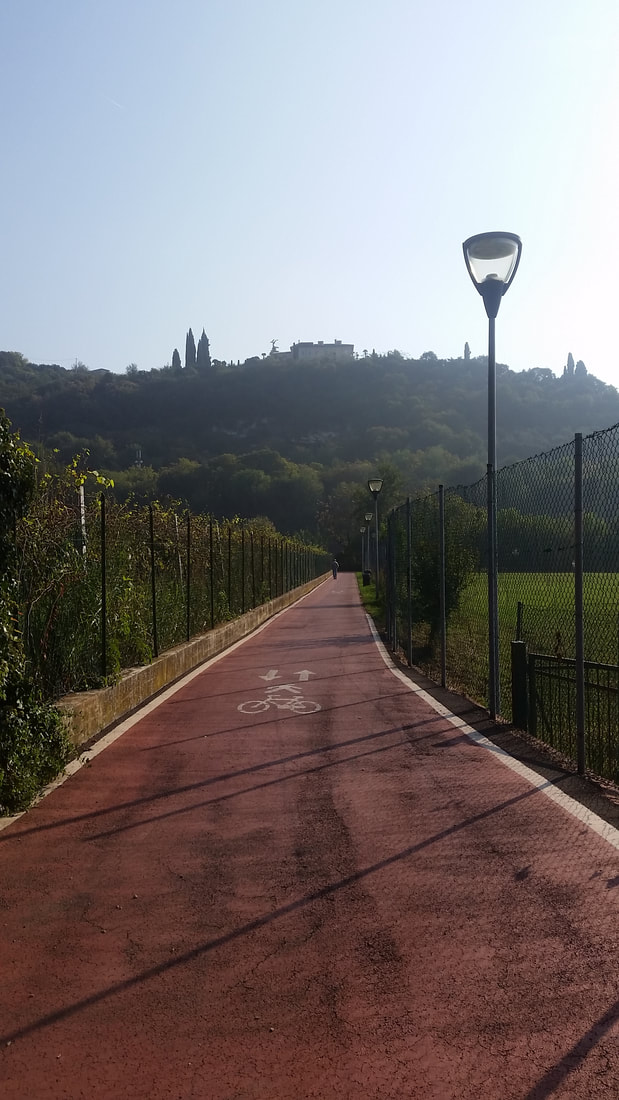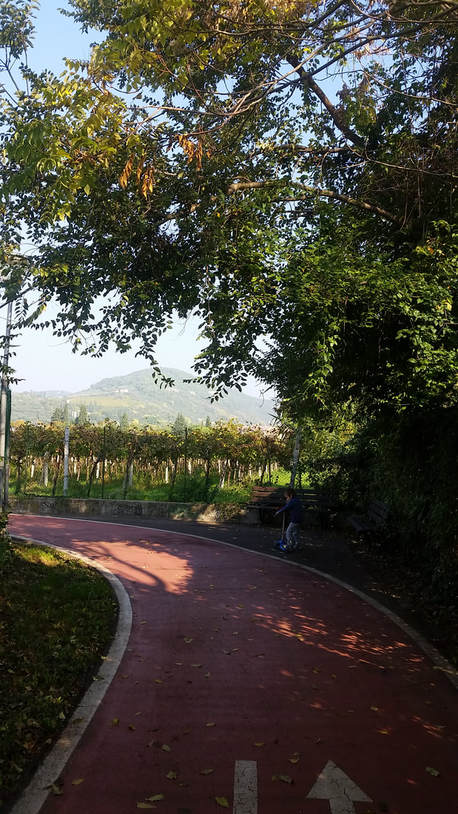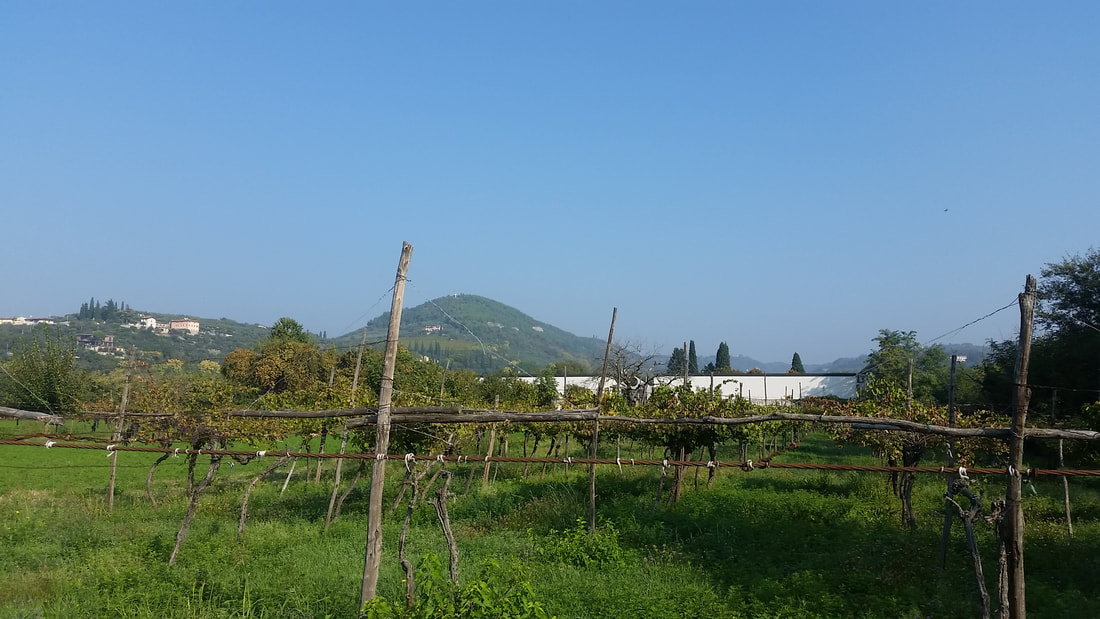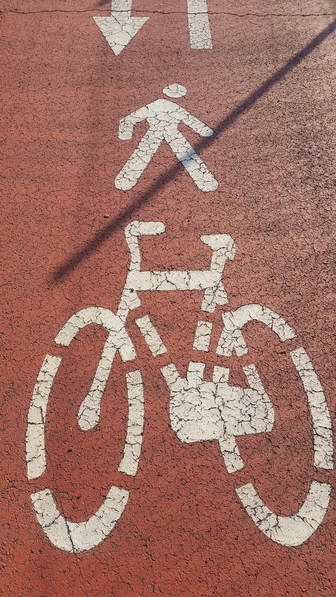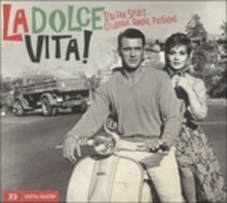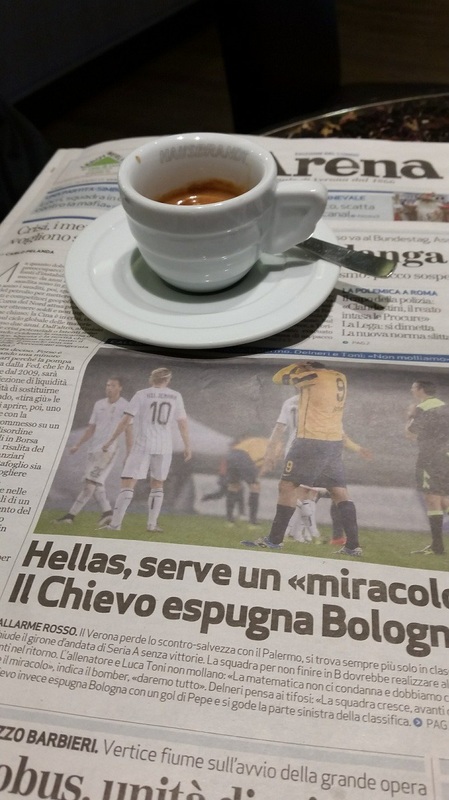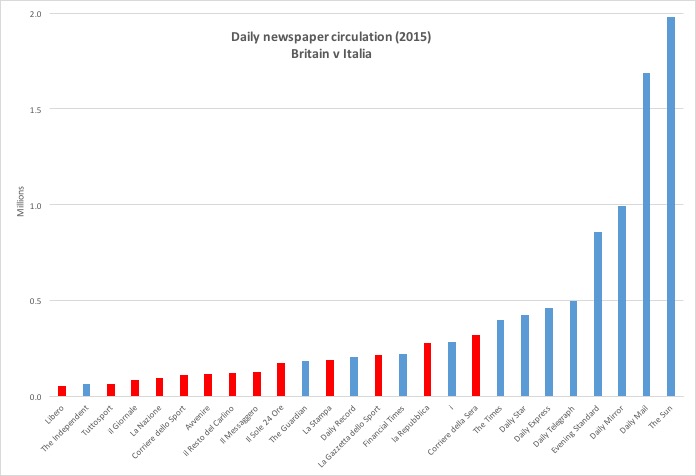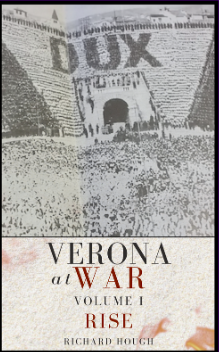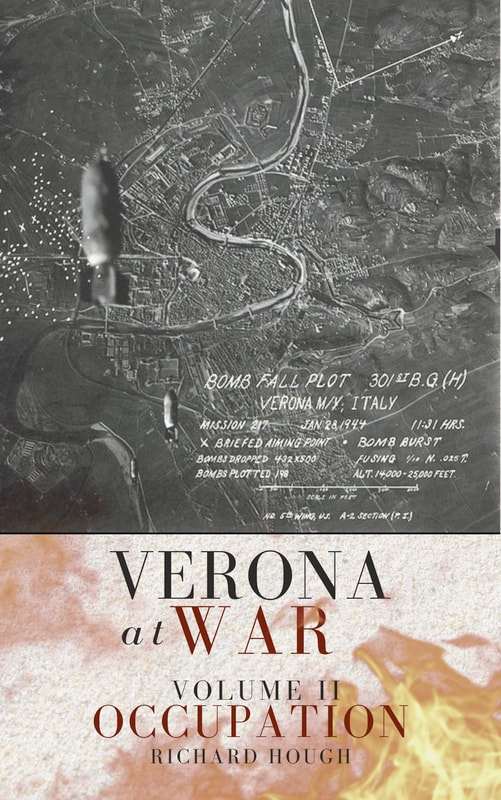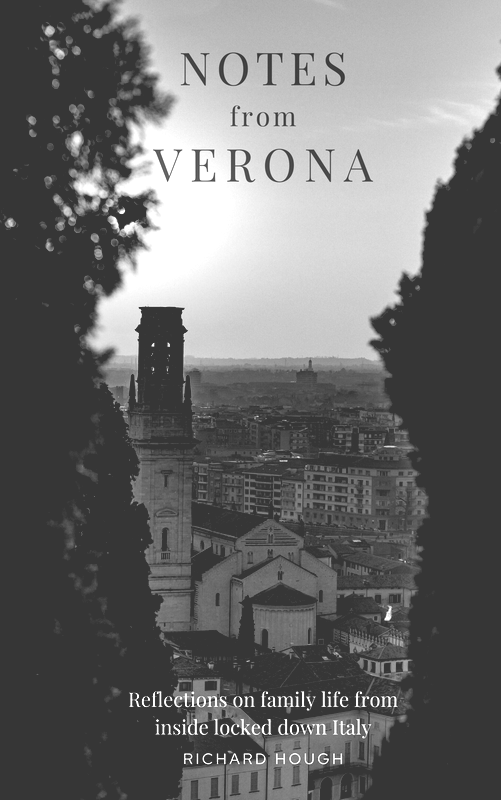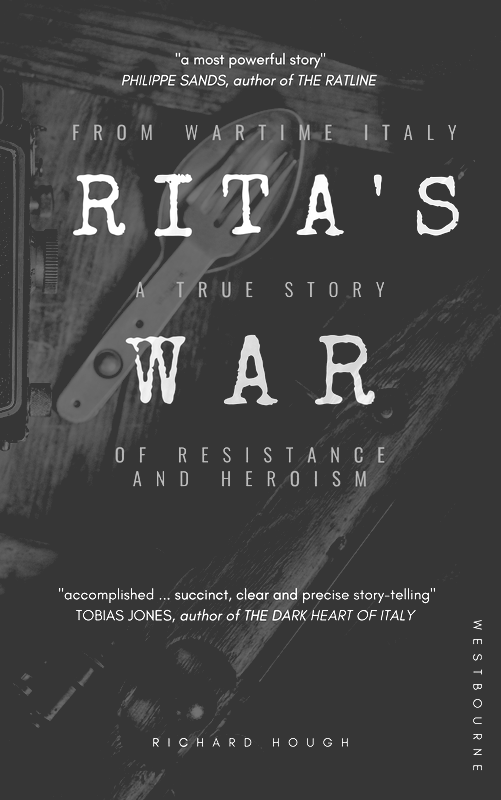|
At the end of our road lies a path.
Although at the time I had no idea where it led, it proved to be a clincher when we were house hunting in Verona 7 years ago. It was a balmy day in late spring. We had spent the weekend viewing apartments across the city ahead of our planned relocation later that year. We were hot, tired, stressed and slightly deflated by what we'd seen so far. Finally, we came to a modern complex in a quiet green cul de sac on the northern periphery of the city. We were shown around a bright and spacious apartment. It ticked a lot of boxes. My wife and I exchanged approving nods and asked the vendor for a moment or two in private. We stepped outside onto the street to confer. The apartment was at the top end of our budget and there was another place that I had a slight preference for. Then I noticed the cycle path, and that sealed it for me. I had a clear vision of our 3-year-old learning to ride his bike here.
It turned out to be a good decision. Seven years later we're still here. And my second son (now 4) has inherited his big brother's bike.
On Saturday morning, as Number 1 sped off for his swimming lesson and Number 2 was meandering contentedly along himself, I had a rare moment to reflect on the significance of our pista rossa (red path). The path provides a pedestrianised link between the northwestern tip of the city and the neighbouring villages of Avesa and Quinzano. It's a modest affair, all told, probably less than a kilometre in length. But from here the world (or at least our neighbourhood) is our oyster. The swimming pool, the pizzeria, the butcher, the local football team, are all within few minutes cycle. Cutting its way alongside a babbling brook, which mysteriously disappears underground as it reaches the road, the path then breaks left, playing fields on one side and a well-maintained vineyard on the other. Another couple of hundred yards and you can choose to continue straight ahead towards the swimming pool, where the path abruptly ends, or take a right turn towards the sleepy village of Avesa.
Whether it's for football, groceries or pizza, Avesa is a regular destination. In the late spring the leisurely stroll with neighbours to the village Sagra is cherished annual ritual.
In the high summer, afternoon trips along the searing path to cool down at the local swimming pool are an essential feature of our daily routine. Beyond the path itself lie the Veronese foothills - ideal territory for a run, cycle or hike. And so, on Saturday , as I soaked up the warm morning sunshine and breathed in the clean fresh air, I reflected on how lucky we are to have this modest strip of pathway on our doorstep. A green space where children can learn to walk and run and cycle. And parents can relax, if only for a moment, and be thankful for the choices they've made and the small pleasures that life brings.
We'd just crossed the Po on the final stretch of a gruelling winter drive from rural Tuscany back home to Verona in the north east. With freezing temperatures and heavy snow forecast, we had abandoned our normal route home through the scenic mountain pass, il Passo delle Radici (1,529 metres), that connects Tuscany with Emilia-Romana. Instead we took the more circuitous route, avoiding the high northern Apennines, that would see us first head south towards Lucca, then swing west to Florence, before finally turning north past Bologna, Modena and Mantova.
By late afternoon we were on the final stretch of fast flowing motorway between Mantova and Verona. The worst of the weather was behind us and our spirits were beginning to lift. All going well, we'd be home within the hour. The poor souls who were heading south, on the other hand, faced 60 km tailbacks between Brennero and Modena as they returned home after a long weekend skiing.
Having thoroughly exhausted our current cd of choice, La dolce vita (a crowd pleasing compilation of singalong Italian classics), we now opted for Stevie Wonder's Definitive Collection to see us through the final stages of our journey.
A musical education for my two young kids in the back, my wife and I blasted our way through hits like Superstition, Sir Duke, Masterblaster and Isn't She Lovely. Fifteen tracks in comes the unmistakable piano intro of For Your Love. By the time the drums kick in at 30 seconds we are deep in the groove. Thirty seconds later comes the voice. Rich, resonant, sincere. "All the gold in all the world is nothing to possess..." With me on drums and the wife on lead vocals, it was one of those fleeting moments where the music, the moment, everything just clicked.
"Well", I said to my rather bemused looking kids, who seemed to have enjoyed our performance despite themselves, "it really doesn't get much better than that!"
And then, catching me completely off guard, came this...
More like this...
As those of you that follow me on twitter will know, I enjoy the daily ritual of perusing the local paper (in my case usually L'Arena of Verona), preferably accompanied by a suitable beverage, in keeping (of course) with the hour. This week I delivered a lesson about the British print media to a group of Italian chartered accountants. As well as discussing British newspapers in general, we also dissected a copy of that august pillar of British journalism, the Daily Mail (in my defence, it was the only UK title I could get my hands on in Verona this week). Each student took an article and reported back to the rest of the group.
From beached whales, to ISIS death threats, bikini selfies as a means to weight loss and the feared extinction of an iconic species of banana, this lesson provided a somewhat perverse insight into the current state of the British media. Of course Italian media isn't without it's faults (don't get me started on television), but, notwithstanding the merits of the Daily Mail, in terms of conveying a serious news agenda, Italian newspapers are far superior to their British counterparts, which seem to me to have descended into a tabloid style, sales driven, celebrity obsessed, race to the bottom. One question that I wasn't quite able to answer at the time was how circulation figures for Italian newspapers compare to those of British titles. So I checked. The results, illustrated in the diagram below, are interesting. |
AboutRichard Hough writes about history, football, wine, whisky, culture + travel and is currently working on a trilogy about wartime Verona.
|
